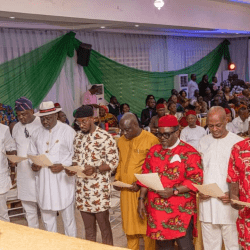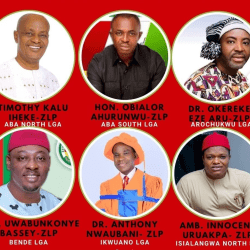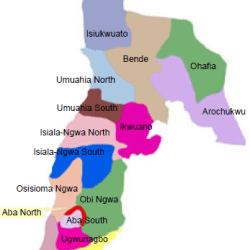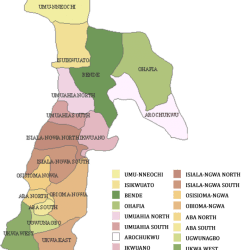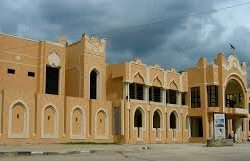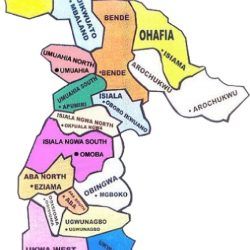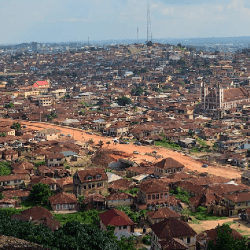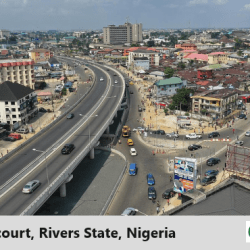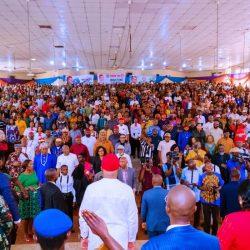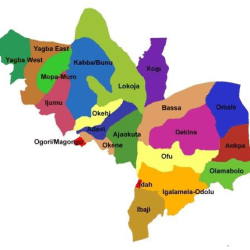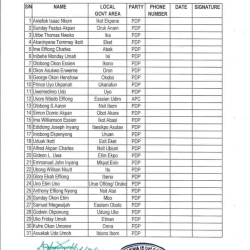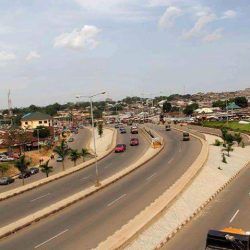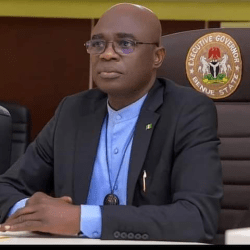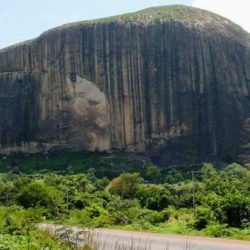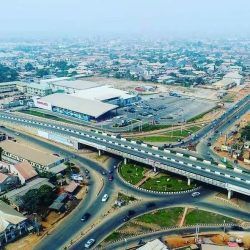The Executive Governor of Abia State, His Excellency, Dr. Alex Chioma Otti inaugurated the newly elected Executive Chairmen of the 17 Local Government Areas of Abia State and their Deputies at the Banquet Hall of Abia State Government House. Governor Otti was joined by his Wife and the First Lady of the State, Her Excellency, Mrs. Priscilla Otti.
The Oath of Office and Allegiance was administered by the State Solicitor-General and Permanent Secretary, Ministry of Justice, Paul Ogubunka.
List of Local Government Chairmen in Abia and their photos
The 17 Local Government Chairmen who elected and assumed office in 2024 are:
- Isiala Ngwa -North innocent Uruakpa.
- Ikwuano -Anthony Nwaubani.
- Arochukwu – Okereke Eze.
- Isiala Ngwa South – Nnadozie Nwaogwugwu.
- Isuikwuato – Chinedu Ekeke.
- Ohafia – Ezeanya Kalu.
- Bende – Uwabunkeonye Bassey.
- Umunneochi – Sunday Afurobi
- Obingwa – Maxwell Nwadike.
- Ukwa East – Chibunna Agara.
- Osisioma Ngwa- Chidi Chibunna Agu.
- Umuahia South – Chinedu Enwereuzo.
- Umuahia North – Smart iheoma.
- Ugwunagbo -iheanachi wagbara.
- Ukwa West – Pastor Dike Nwankwo.
- Aba North – Timothy lheke.
- Aba South – Anyanwu Obialor.



Abia State is a state in south-eastern Nigeria. Umuahia is the capital and Aba is largest city and commercial centre.
Abia was created on 27 August 1991 from the eastern part of Imo state, and it takes its name from the acronym of four of its most populated regions: Aba, Bende, Isuikwuato, and Afikpo.


The state is bordered by Anambra, Enugu, Ebonyi, Imo, Cross River, Akwa Ibom, and Rivers states, and it is the only Southeastern state that has boundary with all the other four Southeastern states in Nigeria.
Abia has 17 Local Government Areas (LGAs), namely:
- Aba North
- Aba South
- Arochukwu
- Bende
- Ikwuano
- Isiala-Ngwa North
- Isiala-Ngwa South
- Isuikwuato
- Obi Ngwa
- Ohafia
- Osisioma Ngwa
- Ugwunagbo
- Ukwa East
- Ukwa West
- Umuahia North
- Umuahia South
- Umu-Nneochi

The Local Government Areas and their capitals are:
- Aba North
Headquarters: Eziama Uratta - Aba South
Aba - Arochukwu
Arochukwu - Bende
Bende Town - Ikwuano
Isiala Oboro - Isiala-Ngwa North
Okpuala-Ngwa - Isiala-Ngwa South
Omoba - Isuikwuato
Nbalano - Obi Ngwa
Mgboko - Ohafia
Eben Ohafia - Osisioma Ngwa
Osisioma - Ugwunagbo
Ugwunagbo - Ukwa East
Akwete - Ukwa West
Oke-Ikpe - Umuahia North
Umuahia City - Umuahia South
Apumiri Ubalaka - Umu Nneochi
Amuda Nkwoagu
The state is rich in natural resources such as crude oil, natural gas, limestone, clay, salt, coal, palm oil, cassava, yam, plantain, banana, maize, rice, and cocoa.
It is also known for its industrial and commercial activities, especially in Aba, which is famous for its leather works, textiles, cosmetics, plastics, pharmaceuticals, soap, and footwear industries.
Abia has a vibrant culture and tourism sector, with attractions such as the National War Museum in Umuahia, the Azumini Blue River in Ukwa East LGA, the Arochukwu Long Juju Slave Route in Arochukwu LGA, the Ngodo Cave in Isuikwuato LGA, and the Abia Tower in Umuahia.
Location
Located in the southeastern region of Nigeria, Abia State lies within approximately latitudes 4° 40′ and 6° 14′ north, and longitudes 7° 10′ and 8° east. The state shares common boundaries to the north with Ebonyi State; to the south and southwest with Rivers State; and to the east and southeast with Cross River and Akwa lbom States respectively. To the west is Imo State, and to the northwest is Anambra State.
The state covers an area of about 5,243.7 sq. km which is approximately 5.8 per cent of the total land area of Nigeria. With its capital at Umuahia, it has seventeen LGAs, namely: Aba North, Aba South, Isiala Ngwa North, Isiala Ngwa South, Ukwa West, Ukwa East, Obingwa, lkwuano, Bende, Arochukwu, Ohafia, lsuikwuato, Umuahia North, Umuahia South, Ugwunagbo, Osisioma and Nnochi.
People
The people of Abia are mainly of the Igbo ethnic group. English is widely spoken and serves as the official language in governance and business while the Igbo language serves as a native tongue. Globally, the Igbo’s are well travelled. They are known to be tolerant, ultra-democratic and reputed to be industrious, highly market oriented, very hospitable and accommodating, probably due to their migratory nature. About 2.4million Abia people are very entrepreneurial in nature.

